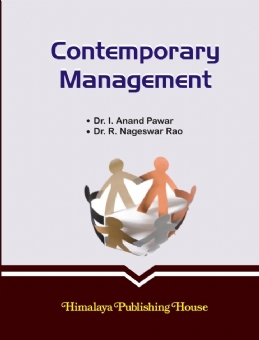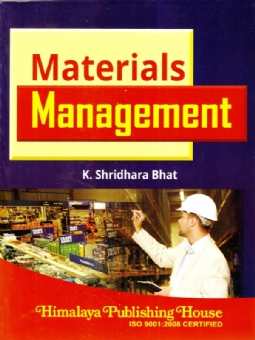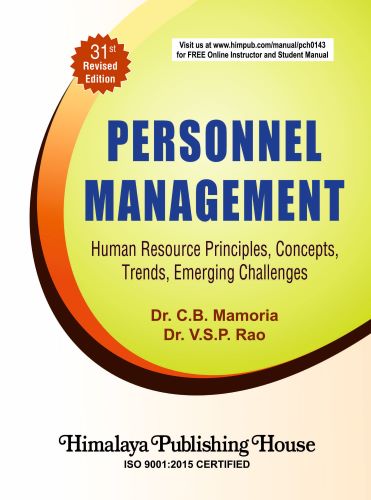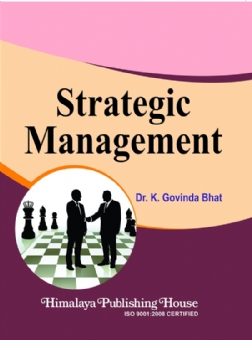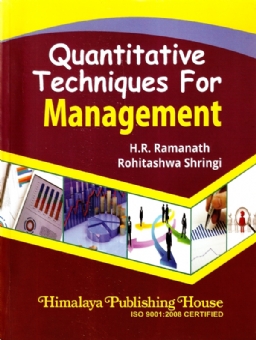The world of managing people and processes continues to change dramatically. Managers are faced with the conflicting challenges of understanding and motivating an increasingly diverse workforce, being open and accountable to a wide variety of stakeholders, planning for the future in an increasingly changing environment and considering the ethical implications of decision-making. Contemporary Management offers a fresh and integrative view of the manager in the workplace in line with this changing environment. It views the manager as a person, working with people and within an organisation, and holding and ethics. As such, modern issues such as diversity, cultural change and global management are given careful attention. Management is an integrated and sometimes intricate balance of dealing with people within an organisational context. For students, the prospect of managing others can be particularly daunting. Contemporary Management is written with the student in mind, with many current case studies, exercises and support materials included. In this thoroughly modern text, students learn that successful human interaction and communication are the real basis for effective and efficient management in business.
“Contemporary Management” by Anand Pawar and Nageswar Rao distinguishes itself through its authorship, comprehensive, current contents, rich and relevant examples and applications and experiential exercises provided in every single chapter. This number 1 best-selling text continues to redefine what principles of management texts should look, sound, and feel like. As an author team Gareth Jones and Jennifer George are uniquely qualified to write about both the strategic and organisational challenges managers face. “Contemporary Management” is a comprehensive text that surveys the theoretical underpinnings of modern management thought and research. Through a variety of examples from an expanded number of small businesses to medium and large companies it shows the reader how those ideas are used by practicing managers. A hallmark of this text is its focus on the `Manager as a Person`, which discusses managers as real people with their own personalities, strengths, weaknesses, opportunities, and problems.
Management has never been generally thought of as an exciting or thrilling activity. But this is mostly due to ignorance. Only a small proportion of people have direct experience of what`s involved in management, what managers are like, and the enormous difference effective management styles can make in the world. You would have expected the excitement quotient to have risen in the 20th and 21st centuries. After all, management is the consolidation of opportunity − and there can be no argument with the proposition that the number and scale of opportunities have risen with a speed and power that managers must surely follow.
It is interesting to note that no totally new conceptualization of management has emerged to completely replace the traditional perspectives on management. Regardless, managers continue to seek new insights into how to better lead, motivate, organise and control their organisations. It is interesting to speculate on whether the majority of contemporary management thinking and writing is advancing management thinking or simply educating the next generation of managers. In other words, are we really becoming better at management or simply struggling with the same issues managers have always faced and simply defining new terms and descriptions of the solutions? Most likely there is a mixture of both. The text identifies a number of best-selling books published in the past two decades that are considered essential reading for students of management. Reading a selection of these provides a breadth of understanding of issues relevant to today`s managers. Two common themes in this contemporary management literature are speed of responsiveness and individuality in orientation.
The challenges faced by managers today include downsizing, managing diversity, the speed and nature of change faced by individuals and organisations, and new technology. The globalization of the economy, a complex array of approaches to organisational design, the shift to a services orientation in the economy and the reemergence of ethics and social responsibility as a prime concern of businesses all present significant challenges, and opportunities, for managers at all levels in all organisations. It is important for managers to see their education in management as a lifelong process. Most readers of this text and Study Guide will be managers in several different companies and/or in several different industries throughout their career. The broader an individuals understanding of the external environment, and the greater their depth of managerial experience and knowledge, the more value they can add to any one organisation and the more transportable their skills are across industries.
Modern managers are supposed to involve themselves in the process of − gathering, analyzing and disseminating information. It is interesting to note that Frederick Taylor, and indeed much earlier writers on what we now call management, noted the informational role of managers. Modern IT makes this faster and easier and provides access from remote locations, but the fundamental purpose remains the same. As we shall discuss in a number of areas throughout this book, it is important to keep the emerging technologies in perspective. As innovative as they are, they remain tools to use in the pursuit of better management of organisations. The technology itself should not become the end or drive the business.
All the above dynamics have give raise to a new realm of Contemporary Management. This book brings several issues, challenges, strategies, policies and practices emerging from management of modern businesses. Further, this book covers all major areas of management such as: (i) General management; (ii) Human Resource Management with special reference to leadership; (iii) Finance and Banking aspects by focusing on macro-dynamics of micro- finance and its governance; and (iv) Marketing – a dynamic field of management. This book has made an attempt to bridge the research gap in all most all the major areas of management and will serve as a novel book for not only industry but also scholarly academicians and students too.
Contents :
SECTION − A: GENERAL MANAGEMENT
1. The Contribution of IT in Knowledge Management: A Conceptual Study − Dr. E. Manohar, Ajay Kumar
2. Value Chain Analysis: A Competitive Advantage for Indian Civil Aviation − R. D. Venkatesh, M.N.R. Manohar
3. Role of Cross Cultural Communication in Corporate Excellence − Mahesh Kumar, Dr. Kalyana Chakravarthi
4. Changing Role of SMEs in Sustainable Growth: Issues of Concern − Dr. I. Anand Pawar
5. Organised Retailing in India − The Impact of Recession − Dr. I. Anand Pawar, E. Pandu Ranga Rao
6. Indian Services Sector − Growth and Development − Dr. I. Anand Pawar, E. Pandu Ranga Rao
7. Scientific Communication as a Global Distributed Information System − P. Rambabu
8. Environmental Issues and Corporate Responsibility − Dr. P. Sridhar
SECTION − B: LEADERSHIP AND HRM
9. Leadership Styles in Indian Organisation − An Overview − A. Suresh Kumar, Dr. N. Ramesh Kumar
10. Emotional Intelligence and Need Analysis for HR Professionals − M.N.R. Manohar
11. HR Issues in Leadership Practices by Promoters of SMEs − A. V. Radhika
12. Leadership and Change Management − Dr. Y. Vinodhini, B. Mohan Kumar
13. Leadership Agenda for Change and Healthy Work Environments: Acute and Critical Care Perspectives − Maria R. Shirey, Mary L. Fisher
14. Challenges of Leadership in the Global Scenario − Dr. R. Neelaiah, E. Kamalakara
15. HRM in Indian Banking Industry − Dr. K. Srinivasa Rao, Dr. N. Ramesh Kumar
16. Impact of HRIS on HR Professionals − Dr. J. Suresh Reddy, Mr. C.Y.S.Krishna
SECTION − C: MANAGEMENT OF FINANCE AND BANKING
17. Inclusive Growth And Microfinance: Some Insighits − Dr. Atanu Thakur, Amrita Majumder
18. Financial Inclusion in Andhra Pradesh: Role of Commercial Banks − Dr. K. Sriharsha Reddy, K. Usha Rani
19. Microfinance and SHG-Bank Linkage Initiatives and Emerging Challenges − Dr. L. Srinivas Reddy, Dr. M. Shekar
20. Post Reform Trends in Deposits and Credit Deployments of RRBs in Karnataka − Onkar S. Swami, N. Senthil Kumar, Palash Baruah
21. Financial Inclusion in India: A Study on SHG`s in RR District − Mrs. Latha, Dr. Kompalli Sasi Kumar
22. Financial Inclusion: A Poverty Reduction − Dr. H. M. Jha Bidyarthi, Mrs. Neelam Y. Kasliwal
23. Impact of Computerization on Banking Services: A CRM Perspective − Dr. V. Pramadha
24. Financing of Rural Enterprise −through Microcredit: A Need Based Approach − Dr. I. Anand Pawar
25. Performance of PSBs in the Post-Reform Scenario: An Appraisal Study − Dr. I. Anand Pawar, Dr. D. T. Chary
26. Investor`s Perceptions towards Mutual Funds − A Study − Dr. I. Anand Pawar, Dr. D. Thiruvengala Chary
27. Measurement of Customer Services in UCBs − Dr. I. Anand Pawar
28. Economic Growth and Venture Capital Finance in India: A Passing Review − Dr. I. Anand Pawar
29. Indian Banking Industry– Challenges and Opportunities − Dr. I. Anand Pawar, Dr. S. Chandramouli
30. Penetration of Financial Cards in India − A Sector–wise Analysis − Ch. Srikanth Verma, Dr. Ch. Satyanarayana
31. Performance of Mutual Funds in India: A Comparative Study − Dr. I. Anand Pawar, Dr. S. Chandramouli
32. Risk Analysis in Indian Banks − Prof. R. Nageswar Rao
33. Derivative Securities Market vis-a-vis Indian Stock Market − An Evaluation − Dr. K. Rajender, Mr. S. Narender
34. Global Insurance: A Study on Select Countries − Dr. D. Chennappa, N. Anjaneyulu
35. Impact of FIIs on Indian Stock Market − An Analysis − Dr. K. Rajender, T. Raju
SECTION − D: MARKETING MANAGEMENT
36. Outdoor Advertising: Creating a Conversation with Potential Customers − Rik Paul
37. Dynamics in Integrated Marketing Communication − T. Latha Chakravarthi, Dr. T. Kalyana Chakravarthi
38. Customer Loyalty Pattern in Mobile Telecom Sector: A Field Study − Dr. I. Anand Pawar
39. Green Consumerism: An Opportunity for Marketers in India − Dr. Smitha Sambrani
40. Brand Building is Possible in Recession? − Dr. I. Anand Pawar
41. Supply Chain Management in Cement Industry − E. Pandu Ranga Rao, Dr. I. Anand Pawar
42. Attitude of Consumers towards Organised Retailing − Dr. I. Anand Pawar
43. Customer Relationship Management and e-Business − K. Venkateswara Rao
44. Consumer Behaviour towards Telecom Mobile Services − A Study − Dr. B. Anand
45. Measurement of Customer Satisfaction of Airtel Mobile Services − Dr. I. Anand Pawar, Dr. D. Thiruvengala Chary
46. Customer Expectations and Satisfaction of Cellular Services − Dr. B. Anand, Dr. I. Anand Pawar

